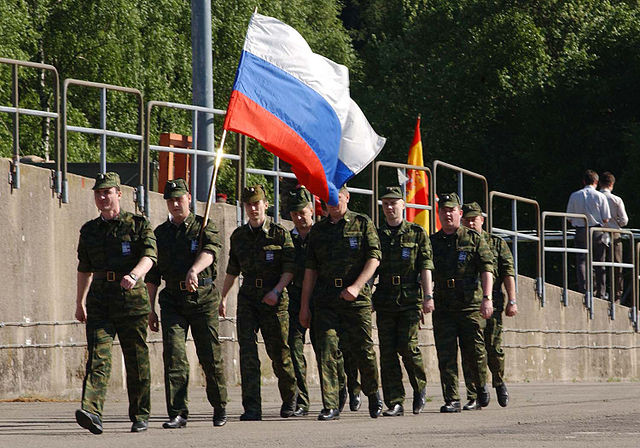Russia's military has reportedly deployed a thermobaric bomb, also known as a vacuum bomb, in retaliation for Ukraine's unprecedented incursion into the Kursk region, escalating the conflict between the two nations. The Russian Ministry of Defense confirmed the use of the bomb, which is capable of vaporizing human bodies with its intense pressure and heat. This deployment marks a significant escalation in the ongoing war, as Russia responds to what it describes as a "counter-terrorism operation" against Ukrainian forces.
The Ukrainian incursion into the Kursk region, which began earlier this week, represents the most significant cross-border attack by Ukraine since the onset of Russia's full-scale invasion in February 2022. Ukrainian forces, supported by heavy artillery and drone swarms, managed to penetrate as deep as 20 kilometers into Russian territory, taking control of key areas around the town of Sudzha, a crucial logistical hub. This bold move by Ukraine has left the Russian military scrambling to contain the situation, leading to the deployment of thermobaric weapons.
The use of thermobaric bombs, while not a violation of international law, is highly controversial due to the devastating impact on human life. These bombs create a massive explosion that consumes oxygen in the blast area, producing a high-temperature, high-pressure wave capable of causing severe destruction. The Russian military's decision to deploy such a weapon highlights the intensity of the ongoing conflict and the lengths to which both sides are willing to go.
In response to the Ukrainian incursion, Russia has imposed a sweeping security regime across the Kursk, Belgorod, and Bryansk regions, which border Ukraine. These measures grant the Russian government broad powers, including the ability to relocate residents, control communications, and requisition vehicles. According to the Russian defense ministry, up to 76,000 people have been evacuated from the Kursk region as a result of the ongoing military operations.
Despite the severity of the situation, Ukrainian officials have remained tight-lipped about their objectives in the Kursk region. The incursion, described by some as a strategic move to gain leverage in potential ceasefire negotiations, has caught Russia off guard and prompted significant questions about the effectiveness of Russia's border defenses. Russian military bloggers have expressed frustration with the ease with which Ukrainian forces were able to penetrate the region, calling the situation a "full-scale military operation against a very serious enemy."
The deployment of thermobaric bombs has drawn international attention and concern. The United States, along with its NATO allies and G7 partners, has warned of a "swift and severe response" should Iran follow through on a reported plan to supply Russia with additional missiles. Iran, which has been accused of supplying Russia with drones and other military equipment, has denied any involvement in the Ukraine conflict. However, intelligence reports suggest that Russian military personnel have been training in Iran to use advanced missile systems, raising the stakes in the conflict.
As the fighting continues, the situation in Kursk remains fluid. Ukrainian forces have reportedly gained control of several key areas, including a gas measuring facility in Sudzha, which is critical for the transit of Russian natural gas to Europe. Despite the ongoing conflict, gas supplies through the pipeline have not been disrupted. The head of Russia's Federal Security Service (FSB) has ordered an anti-terrorist regime in the affected regions, granting security forces extensive powers to control the situation.





